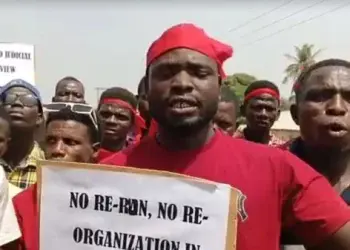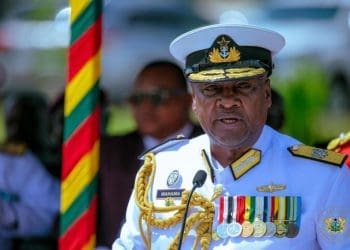The United States government has blacklisted Ghana from receiving foreign assistance, including development loans and specialised programmes such as the Millennium Challenge Corporation (MCC), for failing to honour debt obligations owed to the USA in 2025.
The MCC Candidate Country Report for Fiscal Year 2026 confirmed Ghana’s exclusion, citing the country’s default on principal and interest payments owed to the United States.
The decision underscores the impact of Ghana’s sweeping debt suspension and restructuring programme, which began in 2022 as the country struggled with a severe fiscal and economic crisis.
Legal backing
The ban is backed by Section 7012 of the U.S. State, Foreign Operations, and Related Programmes Appropriations Act for fiscal year 2025.
The provision states: “No part of any appropriation provided under titles III through VI in this Act shall be used to furnish assistance to the government of any country which is in default during a period in excess of one calendar year in payment to the United States of principal or interest on any loan made to the government of such country by the United States pursuant to a program for which funds are appropriated under this Act unless the President determines, following consultation with the Committees on Appropriations, that assistance for such country is in the national interest of the United States.”
In essence, countries that owe the U.S. government and fail to make payments for more than one year are automatically disqualified from aid programmes, unless the President grants a waiver in America’s national interest.
Ghana’s debt suspension: An emergency measure
Ghana’s debt troubles came to a head in December 2022, when the Ministry of Finance announced the suspension of external debt payments.
The move covered Eurobonds, commercial loans, and most bilateral obligations.
Officials described it as an “interim emergency measure” to preserve dwindling international reserves, prioritise essential imports, and create space for debt restructuring talks with creditors.
The government, however, exempted certain obligations, including multilateral debt (such as loans from the IMF and World Bank), new borrowing after December 19, 2022, and short-term trade finance facilities that supported critical imports like fuel and medicine.
The suspension marked Ghana’s first sovereign default in decades and set the stage for a comprehensive debt exchange programme to restore sustainability under a $3 billion IMF Extended Credit Facility.
Milestones of the debt exchange programme (Early 2023)
The government first turned inward, restructuring about GH¢137 billion of local bonds.
After difficult negotiations and multiple deadline extensions, it achieved around 85% participation from domestic bondholders. Coupon rates were slashed, maturities extended, and near-term interest payments reduced, easing the pressure on government finances.
Talks with international bondholders (2023)
Attention then shifted to the roughly $13 billion in Eurobonds. In March 2023, Ghana formally launched restructuring talks with external bondholders.
By June, the government presented a proposal aimed at reducing $10.5 billion in interest costs over three years.
Official Bilateral Creditors’ Committee (2023)
In May 2023, bilateral creditors—led by China and France under the G20 Common Framework—formed an official creditor committee to coordinate Ghana’s restructuring.
Their engagement was key to unlocking IMF disbursements.
Deal in principle with bilateral creditors (January 2024)
Ghana reached a landmark agreement to restructure $5.4 billion of bilateral loans.
The deal cleared the way for the IMF to release further funds under the bailout programme.
MoU nearing signature (Mid-2024)
By June 2024, Ghana was close to signing a formal Memorandum of Understanding with bilateral creditors to cement the restructuring terms.
This was a crucial condition for the release of additional IMF tranches.
Eurobond agreement (Late 2024)
After lengthy negotiations, Ghana and its international bondholders agreed to a 37% cut in the face value of about $13 billion in Eurobonds.
New bonds carried lower interest rates—5% over the next four years—with a portion bearing only 1.5%.
The agreement included safeguards preventing preferential treatment of other creditors and required transparent debt reporting.
This breakthrough paved the way for Ghana’s exit from default and restored confidence in its ability to manage external debt sustainably.
When will Ghana resume bilateral debt payments?
Although the debt restructuring has achieved significant milestones, Ghana is not expected to restart payments on its foreign bilateral debts until 2026.
This delay allows the government to stabilise its finances under the IMF programme, rebuild reserves, and implement reforms designed to anchor debt sustainability in the medium term.
Implications of the U.S. blacklist
The U.S. decision to blacklist Ghana highlights the tangible consequences of prolonged default.
Beyond losing access to concessional loans and technical assistance, the exclusion from MCC support is particularly damaging.
Ghana has previously benefited from MCC compacts worth hundreds of millions of dollars, funding major projects in energy and infrastructure.
Without a Presidential waiver, those opportunities are now shut off.












